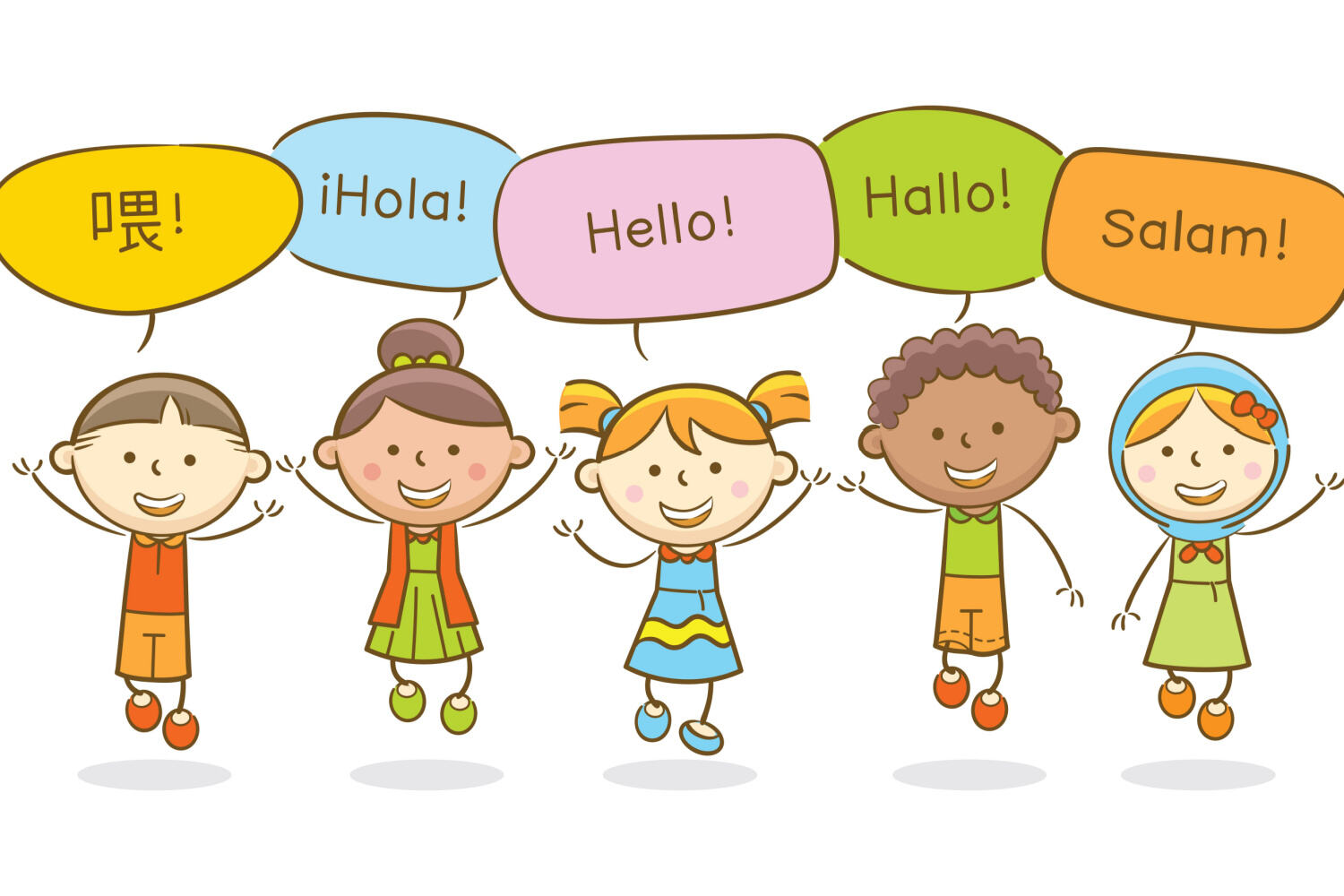
Top 10 Language Activities For Toddlers to Boost Language Development

Language – we have so many of them virtually us, expressly in India. If your toddler would go virtually and play with other kids in their neighborhood, they are sure to come wideness at least 3 or 4 variegated languages. Learning a language can be a little tough but toddlers need to learn and develop their primary language for communication. Apart from speaking, you can use many interesting language activities for toddlers to uplift language development.
Toddlers are quick in learning and picking a language when they have repeated exposure to it. It can be in the form of communication, games, activities, or plane by simply hearing someone speak. It is not easy to teach a language to a toddler in the traditional way of teaching. You need some fun activities to make language minutiae interesting and effective.
In This Article
- Importance of Activities to Uplift Toddler Language Development
- List of Top 10 Language Activities For Toddlers
- FAQ’s
Importance of Activities to Uplift Toddler Language Development
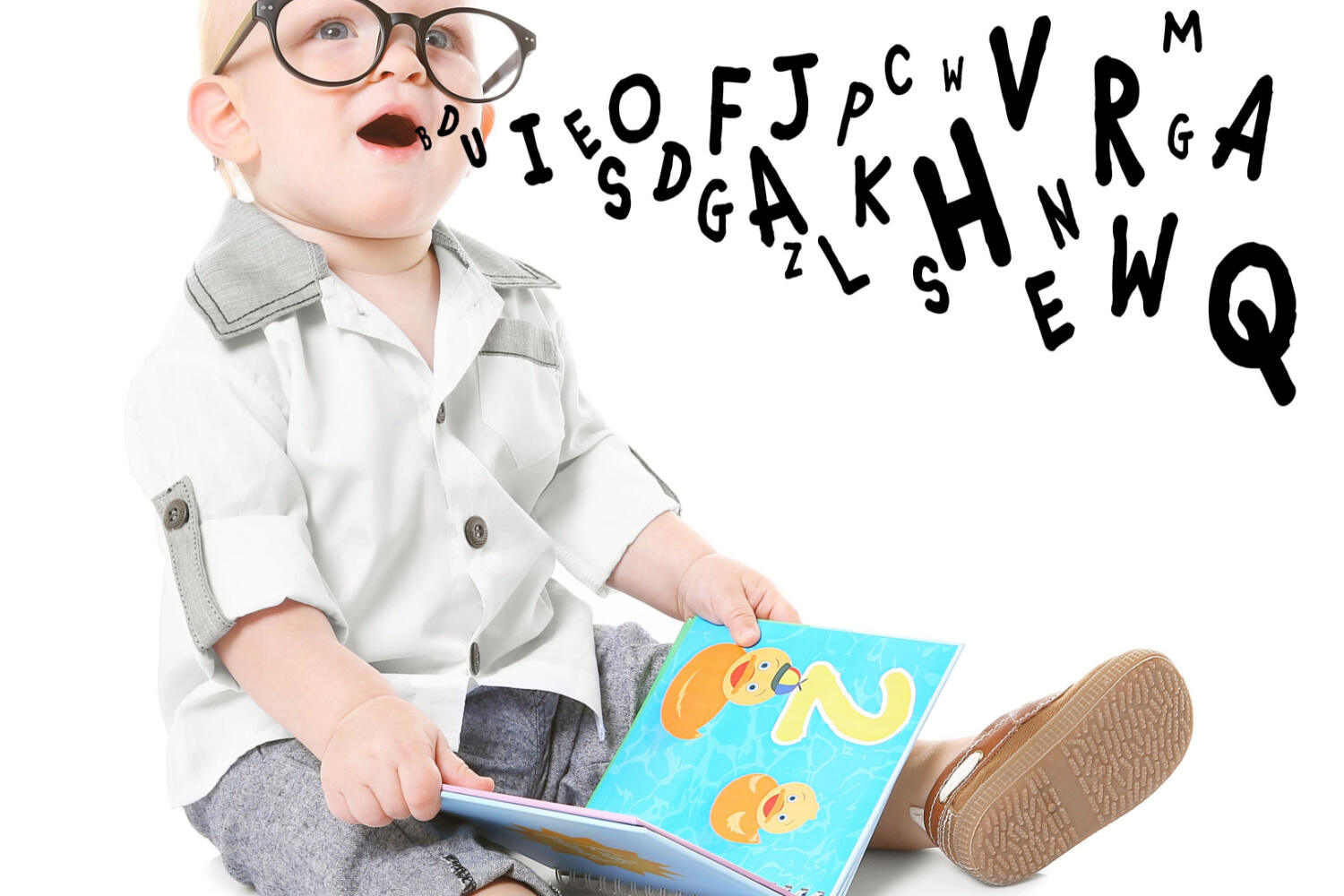
Language is the first step in constructive communication. Toddlers should get familiar with the language they speak at home to start understanding and communicating with the members of the household. Unless they understand a language, you cannot teach them any concept like math, drawing, or craft.
Research say, Language minutiae in toddlers promotes their socializing skills, boosts cognitive development, enables them to express themselves, and sets a strong wiring for education and literacy. Having a good writ over a language will uplift your toddler’s self-confidence and help them communicate with peers and others without any inhibitions.
We all pick languages when we hear them repeatedly. It is easier to use a language only if we speak it regularly. Just learning the words by rote cannot help you communicate unmistakably in a language. It can be nonflexible to remember the names of items or use unrepealable words repeatedly. When you combine this with interesting activities, the smart-ass finds it easier to socialize words with actions, thus helping you remember them longer.
Activity-based learning is an constructive tideway to learning. What your toddler learns through activities tends to register well in their developing minds. When they understand and communicate in one language confidently, it creates a good wiring to learn increasingly languages with ease.
[Read : Speech And Language Minutiae Milestones In Toddlers]
List of Top 10 Language Activities For Toddlers
Language minutiae in early diaper is important. A toddler’s smart-ass can understand and pick multiple languages at a time, unlike the sultana brain. However, you need to put in the effort and requite them the right exposure to uplift their language development.
Coming up with activities can be a daunting task for many parents, expressly when they have their hands full. At the same time, you cannot ignore your toddler’s language developmental phase either. Here are some constructive and interesting language activities for toddlers to uplift their language development.
1. Sing Songs Together

Music is a very constructive mode of learning. Toddlers are taught nursery rhymes in school as it can help them learn easily. It is easier to remember and recollect too.
Sing songs in your mother tongue or local language. You can make up songs with notation your toddler likes, the words they use, or simply sing existing songs. Though your toddler may not understand the meaning of all the words, they will learn to pronounce them. It will be easier for them to pronounce difficult words when it is taught in a tune, on repeat mode.
Singing songs will develop your toddler’s language, their sense of music, and moreover use their vocal muscles in variegated ways to produce variegated sounds.
2. Make Unprepossessing Sounds
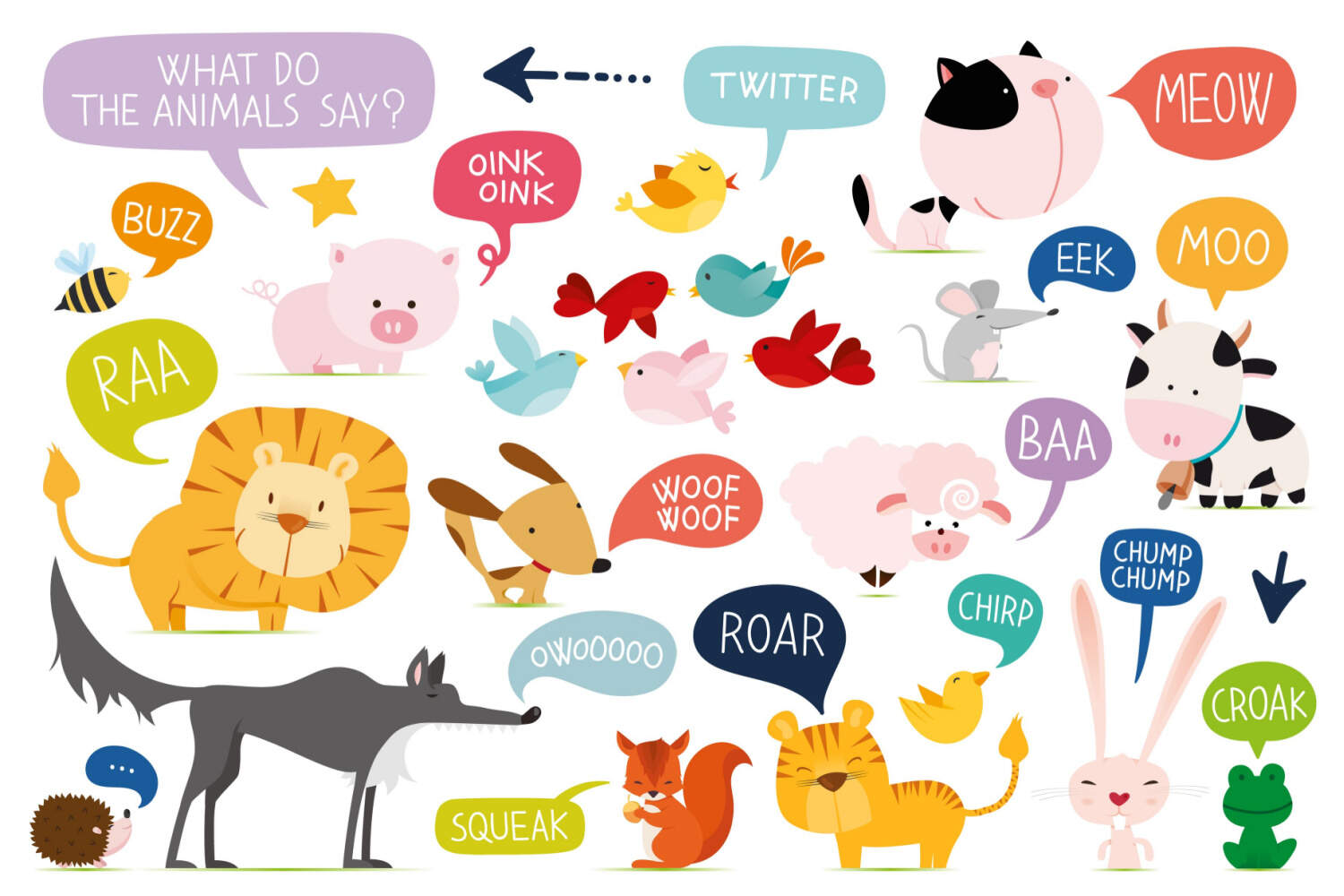
Barking like a dog or roaring like a lion will not teach your toddler any language but will strengthen their vocal muscles. Making unprepossessing sounds can be fun and entertaining for toddlers.
Make a mental list of animals and their sounds. Now ask your toddler to make sounds of a particular animal, if they get it right, move on to the next one. When they don’t know the sound, make the sound and repeat with them.
Through this activity, your toddler will learn the names of the animals in a particular language and will moreover socialize the sound or image of the unprepossessing with its name. Next time they see or hear that animal, they can identify it with the right name.
3. Well-constructed the Sentence

All our minds work in variegated ways. Two people can have a single word in mind but will come up with variegated sentences for it. Completing each other’s sentences can be very witty and very good learning.
For younger toddlers, you can say a few words of a sentence and ask them to well-constructed it with a single word. For example – you can start with “the crow is” and your toddler can say a bird or black. Either way, they are using words in coherence with your reference.
Forming sentences helps enhance speaking skills, and promotes thinking in a unrepealable language, which is very important for easy understanding and fluency of that language.
4. Puppet Show
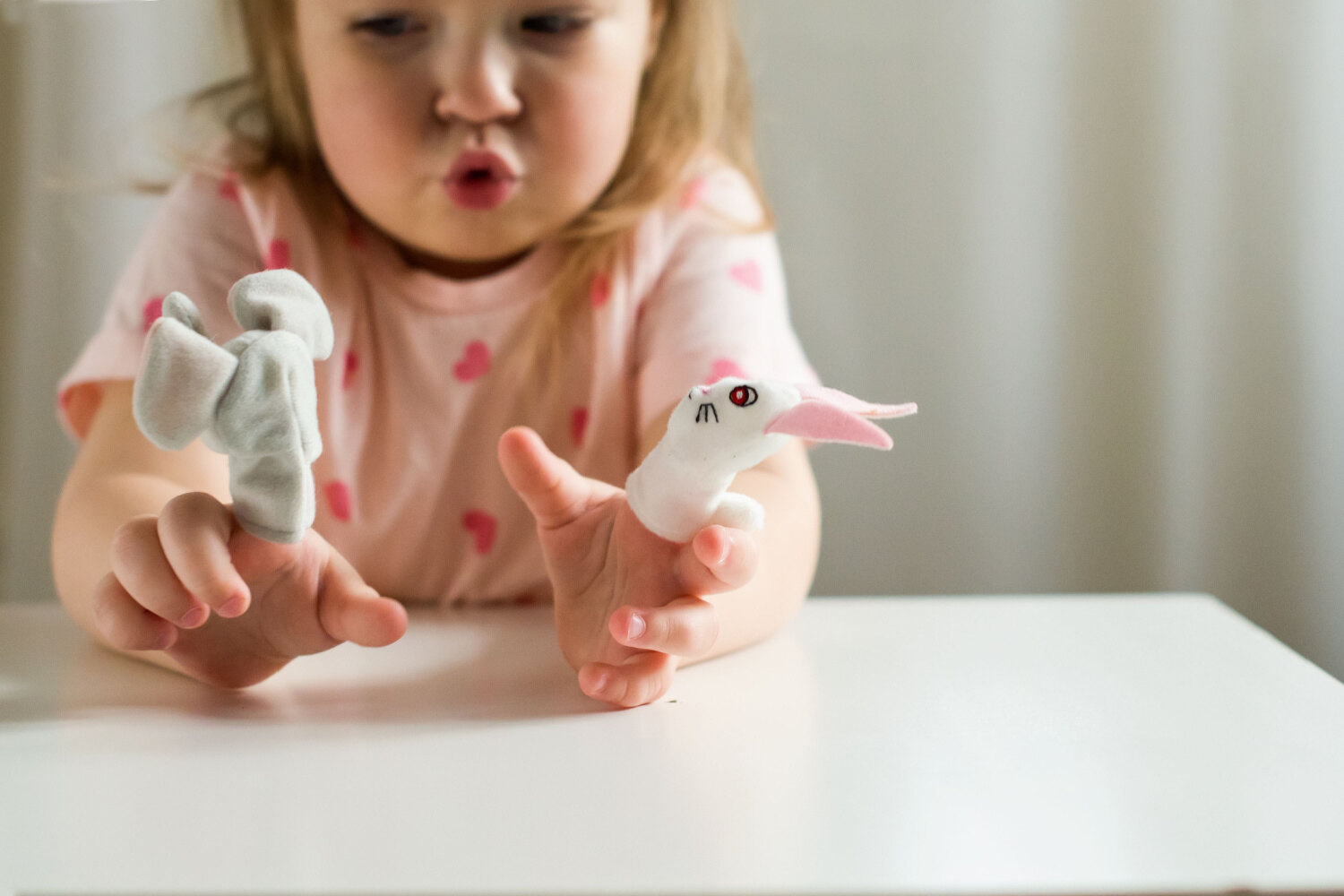
Toddlers love when their toys or non-living items come to life. They enjoy the turned-on voices and jerky movements of objects in a puppet show.
You can make simple finger puppets by rolling a white strip of paper on your fingers and drawing faces on them. Name your finger puppets and come up with a story virtually them. Alternatively, you can make finger puppets of your toddler’s favorite notation or notation from their favorite book. Once your toddler knows what a puppet show is, you can ask them to be one of the puppets next time. When they take on the role of the puppets, they will talk for the puppet,
Puppet shows are a fun way to get creative with words. It improves the toddler’s imagination and gives an insight of what they are hearing and observing virtually them. It moreover helps modernize their conviction and reduces stage fright.
[Read : Puppet Play For Babies]
5. Name the Thing
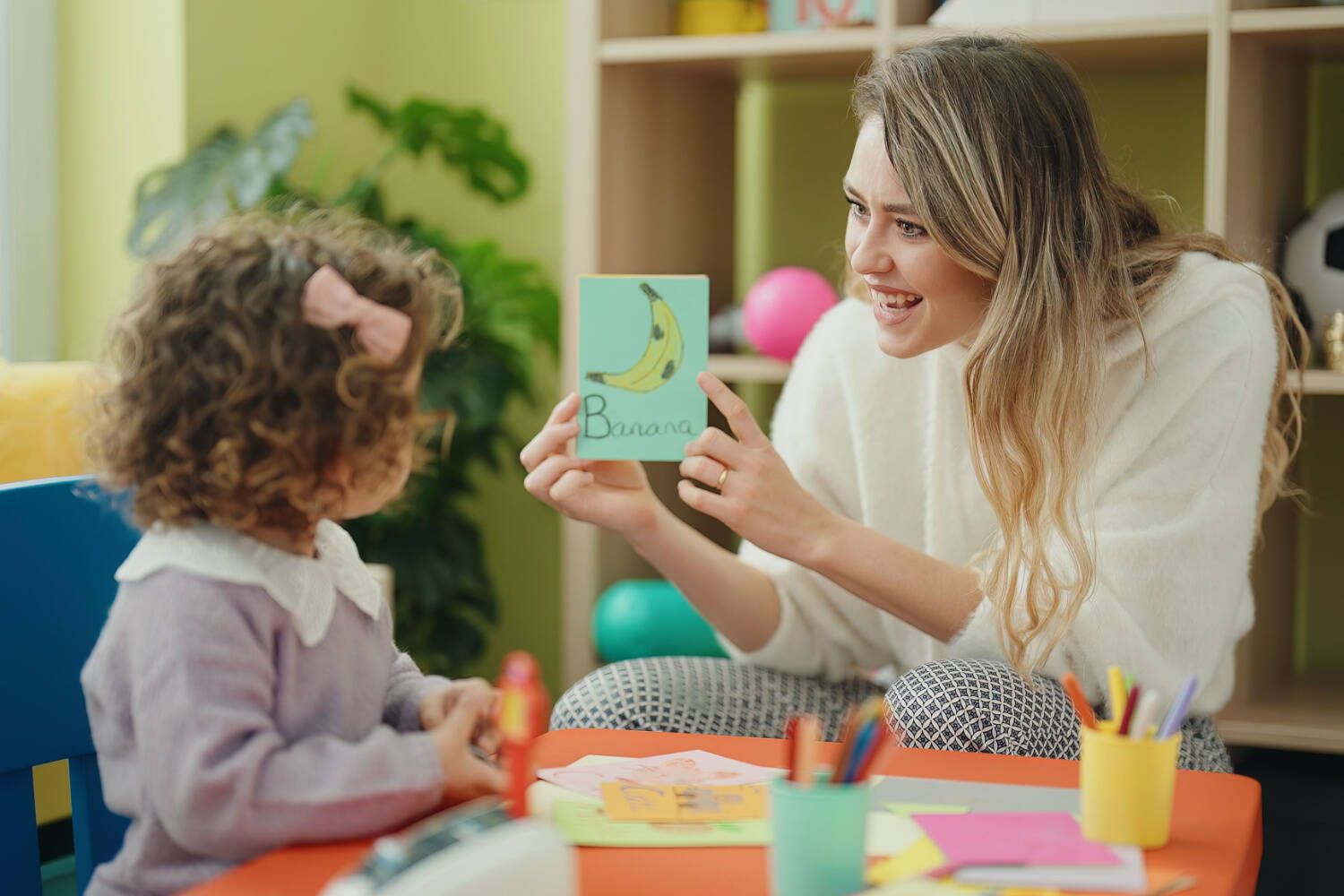
Name the thing, is an constructive game to teach your toddler the right name for everyday items in a particular language.
Look virtually you and point to an item. Let your toddler name it. Teach them the names of items they don’t know or mispronounce. This is a very simple, easy, and constructive game you can play anywhere anytime. You can teach your toddler the name of things in your primary language and then introduce a new language too.
Naming things can help modernize your toddler’s language, modernize focus, and observation skills.
6. Telephone Game
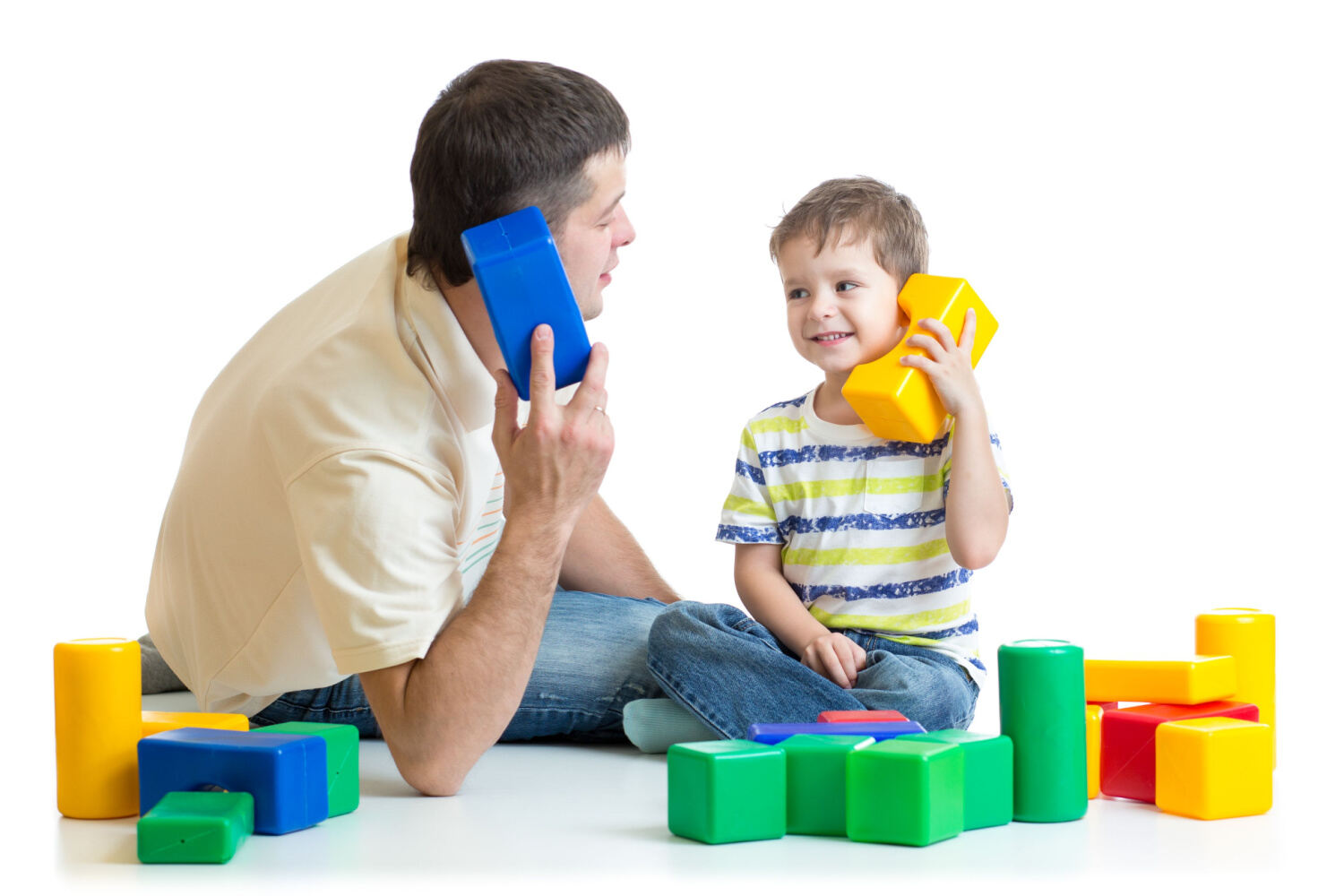
Toddlers love to “pretend play”. Today, when most of us are rented on our phones, mimicking a undeniability can be very entertaining for them.
Use a toy telephone until your toddler understands the concept of dialing and talking. You can moreover just use something solid and pretend it to be a mobile phone and play the game. Pretend to be on a undeniability with your toddler, come up with notation and build a conversation virtually it. Your toddler can be a shopkeeper and you can be a consumer calling to ask well-nigh the availability of things.
Pretending to be on a undeniability will help your toddler develop their liaison skills. They learn to listen, think, and respond in the same language.
7. Match the Alphabet
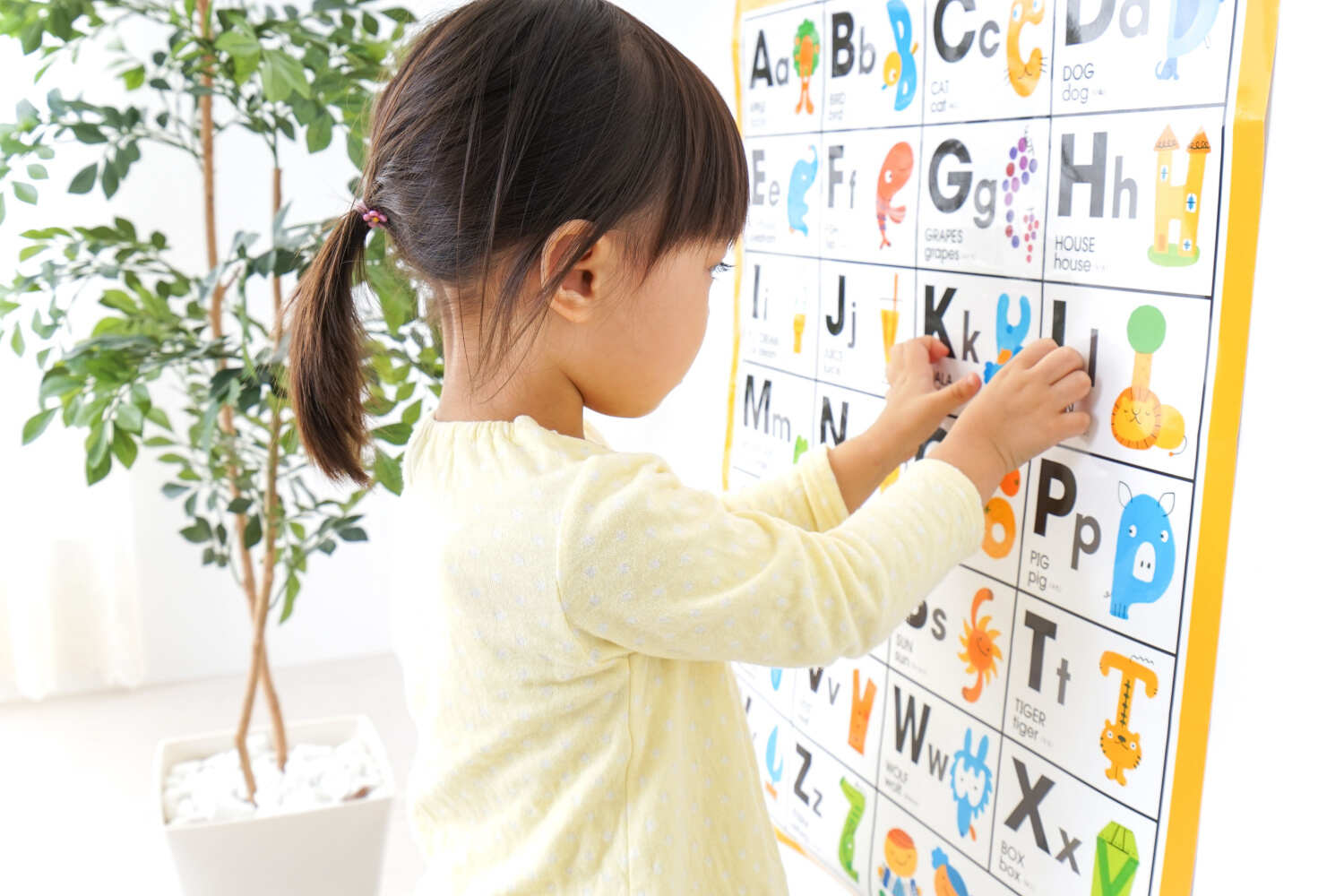
You can play this game in any language. It can be an educational game to play when you are waiting somewhere and your toddler is bored.
For younger toddlers, you can teach the words matching each alphabet. For older toddlers who can spell or understand phonics, you can point to a thing, ask them to name the thing and guess which letter the name starts with.
Identifying the starting sounds can help modernize their pronunciation and spelling as they grow up. When they squint virtually for items to match the letter, it improves their searching and observational skills.
8. Tongue Twister
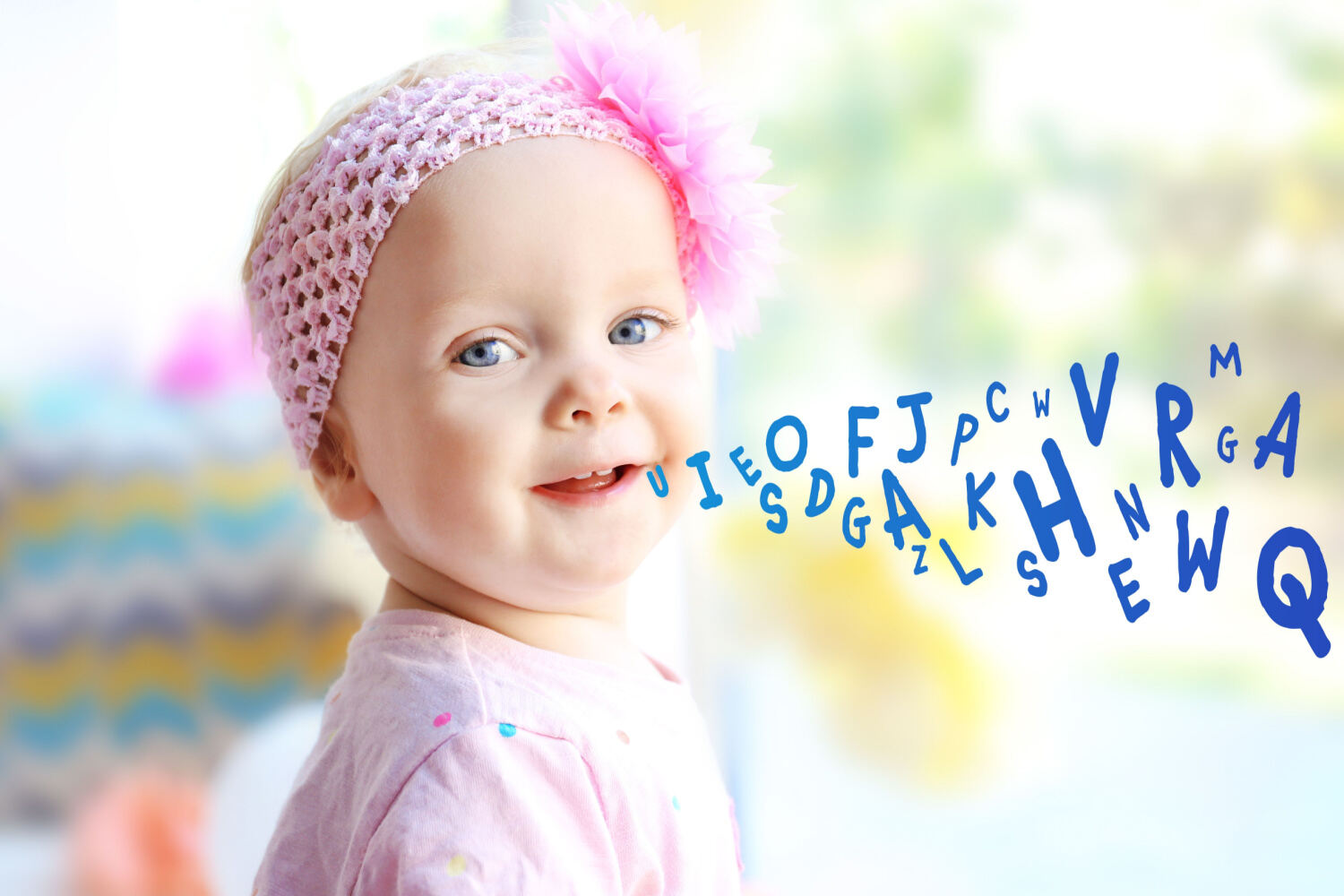
A sure fun way to modernize tongue movement and pronunciation. Tongue twisters are made of similar-sounding words strung into a sentence which can be nonflexible to repeat without effort and focus.
Start with small and very simple tongue twisters. Encourage your toddler to repeat it when they get frustrated and want to requite up. Join them and repeat the tongue twister with your toddler and let them see how plane adults can get it wrong.
When you join your toddler and make mistakes, it boosts their self-confidence. Apart from having fun and learning to pronounce, they learn that adults find such things nonflexible too and it is okay to make mistakes.
9. Role Play Games

Toddlers love to role play. It is their way of stuff in tenancy as they will mostly pretend to be an adult.
You can encourage your toddler to role-play with their toys or plane join them in their game from time to time. Let your toddler segregate who you and they will be. Follow their storyline and improvise as the role-play progresses.
Role-playing encourages toddlers to speak increasingly and communicate effectively. They need to listen, think, and pretend to speak like the weft they are playing. It improves both imagination and vicarial skills.
10. Read a Story
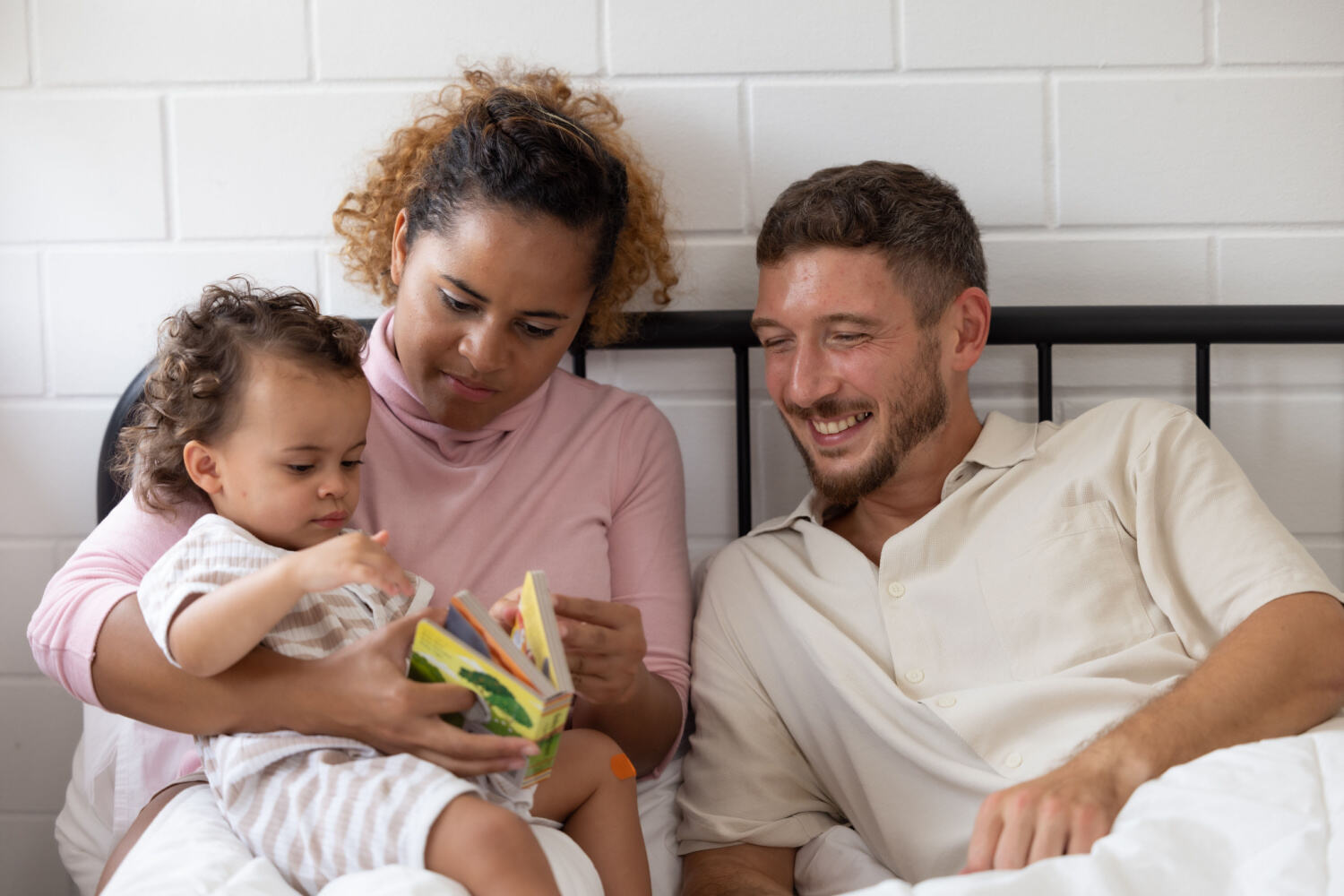
Reading is one of the weightier activities to develop language and liaison skills. Toddlers with a reading habit learn new words easily. Make it a habit to read a typesetting to your toddler every day. You can read them a bedtime story every night. Initially, some toddlers can be restless and may not sit through a story. Keep reading to them and they will sooner start getting into the habit.
Choose books with unexceptionable illustrations that a toddler would like to see and explore. When your toddler is bored, you can let them read the story themselves or make them read it to you. Though they cannot read yet, they will recall the details from memory and correlate them with the images and tell you a story.
Reading introduces your toddler to new words, thus aiding language development. It moreover improves their listening skills and opens a world of imagination and creativity, which are important milestones in a toddler’s overall development.
Developing a language is very important for constructive communication. Toddlers should know at least one language to communicate in when they start school. Plane if they can’t speak clearly, they should understand the instructions and what is stuff taught to them at school. You cannot teach a language overnight, but you can quicken the learning process through activities and games.
[Read : Reading to Your Baby]
FAQ’s
1. What Are The Stages of First Language Development?
A toddler’s language minutiae can be split into 6 stages namely – pre-linguistic, babbling, mono-syllable, single-word, two-word, and telegraphic stages. After this, they start using multiple words and plane tenses in their sentences.
2. What is Language Minutiae Delay?
While a wait in speaking or using verbal liaison in toddlers is nothing to worry about, language wait is concerning. When a child cannot understand or use spoken language in their toddlerhood, they may have a language minutiae delay. Consult your doctor for clarifications and diagnosis.
Read Also: Top 10 Engaging Number Activities and Games For Toddlers to Teach Numbers
The post Top 10 Language Activities For Toddlers to Uplift Language Development appeared first on Being The Parent.


